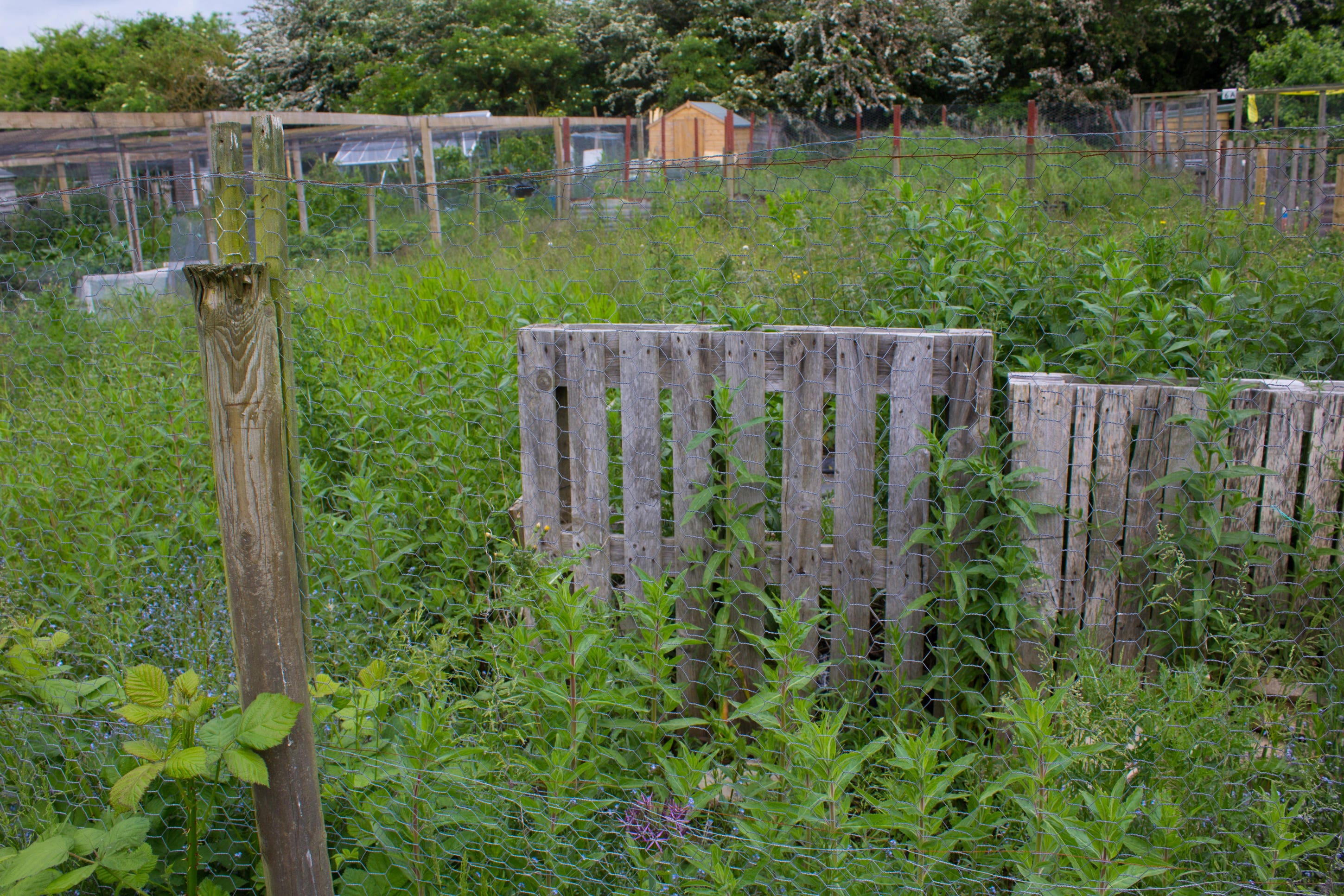Allotment beginners – what to do if your new plot looks like a shambles
Experts offer tips on how beginners can get a new veg patch up to scratch.

You may be jumping for joy when, after being on a waiting list for an eternity, you’ve finally been allocated an allotment.
As the new year begins, growing your own vegetables for the first time is an exciting prospect – unless the allotment you’ve been allocated is a mass of overgrown weeds.
Garden expert, writer and YouTuber Charles Dowding (charlesdowding.co.uk), author of How To Create A New Vegetable Garden, offers this guide for first-time vegetable growers.
Size matters
Beginner gardeners need to consider the state – and size – of any allotment they are taking over and the time they will have to tend it, he advises.
“A full-size allotment is too much for a single new gardener,” he reckons. “In the old days it would have been a family experience. Find friends to help and take on part of it. In a weedy situation, lay down black polythene over the organic matter/compost in the first early spring to help suppress weeds.“If you are a new grower, it’s asking a lot to take on a big space. Scale it down. I have a bed that’s 1.5 x 5m which gives 100kg of food every year.”
Manage your expectations
“I don’t want to frighten people off, but you may be taking over soil that’s been worn out by repeat cultivation and not enough goodness put back in,” he warns. It may take a little time to get the soil back up to scratch.
Cut the weeds back
“The first job is to cut the weeds down to ground level, using shears, a scythe or whatever you have to cut vegetation, so you can see what the surface is like,” Dowding says.
Level the ground“I’ve noticed that quite often people who have harvested potatoes leave the ground looking like the surface of the moon. If you have a very uneven surface you will need to take a spade to it and cut off the ridges and put them in the hollows.”
Compost the area
Once the allotment has been weeded you can put cardboard sheets down to keep the weeds at bay and add a layer of compost on top of that – 2in minimum. February or March is the best time to put the cardboard down, he says. You will be able to sow seeds in the compost above it.
Design your plot
“Have beds and pathways marked out. On an allotment, it’s quite expensive to have the paths and beds lined with wood sides and certainly not obligatory. You can mulch pathways and beds with cardboard and the pathways can have a little bit of woodchip on top.”Gardeners only need beds which are 7-10cm higher than the path, which he says gives you better moisture retention because you are putting fertility on your pathway and on your bed. Not having a wooden border also allows you more cropping area.
You don’t have to do crop rotation
Dowding says: “I’ve done enough trialling of not rotating that I’m confident to say you don’t need to do that. You don’t need to do four-year rotation – it comes from 18th century farming. Grow what you want, where you want to grow it, in the quantity you want, and when that finishes have more plants ready to pop in.
“’No dig’ maintains soil in health and high fertility, so you get less of a problem that people usually quote as the reason for rotation.”
Grow easy crops
“If you like salad, it’s got to be lettuce, which you can grow all year round. Peas are rapid, if someone can keep the insects off, but more than anything I’d recommend potatoes because seed potatoes shoot quickly,” says Dowding.
And if you only have room to grow veg on a small patch in your garden…
You can still grow a good portion of veg in something as small as a 1m x 1m raised bed, says Emma O’Neill, head gardener at horticultural charity Garden Organic (gardenorganic.org.uk).
Beginner vegetable growers like to see things growing quickly or they can easily become discouraged, she notes. So at first stick to crops which will come up quickly.
“Grow salads, which are easy. They germinate quickly, radishes are also super quick, as are herbs. Garlic and spring onions are also easy veg.” Make life easy by ‘chitting’ potatoes and buying onion sets rather than growing everything from seed, she suggests.
“Grow potatoes in a container as they will take up too much space in a small veg patch.”
Subscribe to Independent Premium to bookmark this article
Want to bookmark your favourite articles and stories to read or reference later? Start your Independent Premium subscription today.
